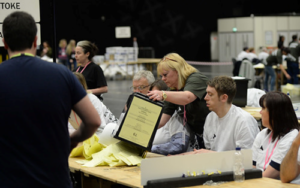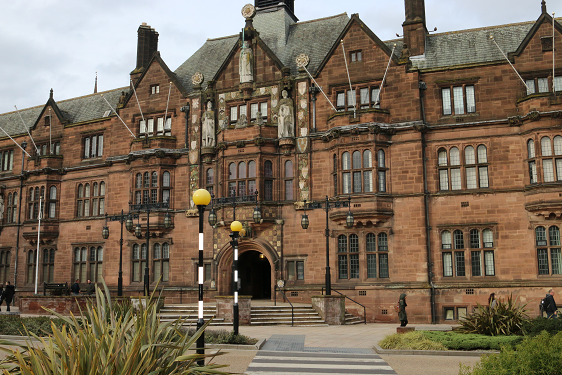Coventry has one of the lowest turnouts at local elections in England. Turnout in 2018/19 was on average 27% across the city. However, turnout can improve when there are local elections on the same day as a general election. So why are people not voting in local elections at other times?
Nothing much seems to change
The Electoral Reform Society (ERS) discusses how frequent elections where nothing much seems to change can put people off voting. This is because some councils including Coventry hold elections by thirds.
There are 18 local wards in Coventry and 3 councillors in each ward. Each seat is up for election every 4 years. This means there are elections every year for 3 years out of 4.
Local elections matter
“i” columnist Simon Kelner also discusses how there is a “worrying misunderstanding” about the relationship between local and national politics. Kelner argues that many people don’t fully understand what local councils are responsible for. This means they tend to ignore local elections because they don’t seem important.
Local elections matter because councils decide what to do with the money they get from the government. Councillors also set council tax rates and make decisions on planning applications and public services.
The founder of Voting Counts states:
“Whilst national politics continues to dominate headlines it can appear that change can only happen via Westminster – and those making decisions at a local level are neglected of the due attention, and scrutiny, they deserve.”
Be politically active
The ERS also states that the current election system of “one-person-takes-all” makes people vote tactically. This can create too many “safe seats” where the results don’t tend to change.
However, campaign group Bite The Ballot discusses how voting in local elections sends a message to the parties in Westminster that you are politically active.
Many people also use local elections as a ‘protest vote’. However, Simon Parker (The Guardian) argues that this only re-enforces the idea that local elections are a “referendum on the government’s performance.”
Parker discusses how this can fuel the media’s perception that local elections are not worth reporting on. In turn, this creates a cycle of declining media coverage and turnout at local elections.

What are the main reason why people don’t vote?
Raconteur Media discusses 5 possible reasons why people don’t vote:
- Lack of interest – people are not interested in elections or politics.
- Lack of knowledge – people don’t know enough about political parties to decide who to vote for.
- Disillusionment – people are fed up with career politicians and meaningless campaign slogans.
- Safe seats – people don’t believe it’s worth voting because their preferred candidate or party has little or no chance of winning.
- Not eligible – people who are not allowed to vote such as prisoners and young people which is a separate debate.
Preserving the status quo
Voting Counts states that local councillors represent a much smaller group of people than MPs do. This means voting in local elections is more likely to have an impact on the result.
Kelner (“i”) also argues that our current political structures are “designed to preserve the status quo.” In Coventry, the council rejected a petition to reduce the number of councillors and change the way elections are held after reporting on the potential savings.
We need cultural change
We need to change the culture of local politics. This means separating national politics from local issues.
Guardian columnist John Harris argues:
“Many town, city and county halls are due a huge change in culture. Above all, if we are eventually going to push beyond the anger, silliness and polarisation of Brexit politics, it is obvious where we will have to start: not among grandstanding celebs and the white noise of social media, but in close proximity to the problems we need to solve, in the places where millions of us actually live.”
Our proposals
The Coventry Citizens Party will hold elections once every 4 years instead of every year for 3 years out of 4. This could save £1m over 10 years. We will also ask the Boundary Commission to reduce the number of councillors by a third.
We are also calling for an Alternative Members System (AMS) alongside a reduction in the number of councillors. This would mean voting for one candidate under the current system and a list of party candidates under a proportional representation system.
Download a copy of our full Policy Agenda here.
Make a donation
Help us fight the local elections by making a donation to the party.
